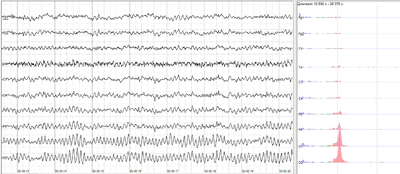Some of the difficulties that arise in many cognitive psychological studies can be attributed to the large amount of variables that may influence results. For example, when measuring the emotional or motivational state of a subject, researchers must carefully target their measure of this so as not to include irrelevant material that may influence their results. Secondly, cognitive psychology researchers must consider the intrinsic subjectivity of their field. If two similar labs were conducting similar research on the perception of an emotion such as happiness, their results could be completely different depending on their method of measurement. To reduce the potential of error due to the above factors, researchers have historically used well-targeted measures that can be easily replicated. In some branches of psychology, there are "standard" tests (that give certain scores) used for studies of a certain nature. You can find some of these listed here. Here are a couple interactive tests if you're in the mood: test your memory and reaction time here. The two links above should give you an idea of what psychological testing can look like.
 |
| A standard spatial reasoning test: which cube unfolds into the shape above? |
 |
| An example EEG from Wikipedia |
Anyways, what I think I'll be measuring is emotional state (which I should be able to connect to intellectual arousal), persistence on a difficult task, perhaps the results of that task, and attention levels during a short educational video. I'm still in the process of reading through studies testing similar things for ideas, but I'm hoping to find an appropriate test for emotion/intellectual arousal that's been used several times before.
I'm looking to get my tests completed in the next few weeks, so check back for updates! Thanks!
use beyoncé!!
ReplyDeleteWhat's the answer to that cube reasoning test? I'm struggling to figure out why the first and the last cubes aren't both a correct answer. Also, how do you plan on measuring the attention levels? Does that entail you just watching subjects' eyes and body language during a video?
ReplyDeleteHaha looks like I need to find a new picture... looks to me like both are right too. I plan on measuring attention through a survey just asking how engaged they felt compared to usual. I'm still working the specifics out but emotional state and intellectual arousal are usually tested using similar methods
ReplyDeleteAccording to that website with the games my brain is weak :/
ReplyDeleteI'm sure some people have practiced those tests for hours :/
ReplyDeleteWill you be using EEGs for your data? If so are you targeting a specific area of the brain?
ReplyDelete